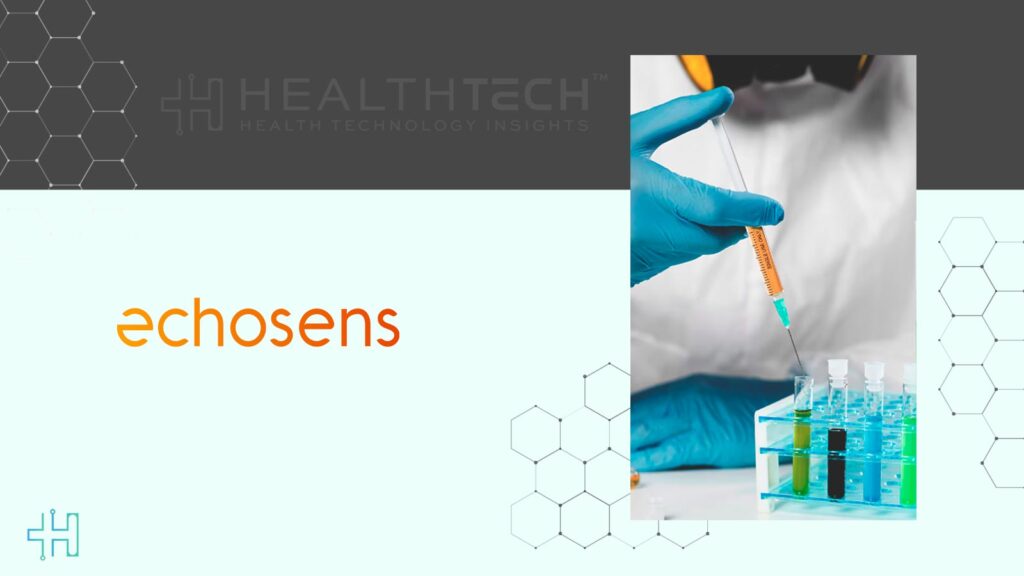Echosens, a global leader in non-invasive liver diagnostics, has shared news that the U.S. Food and Drug Administration’s Center for Drug Evaluation and Research has accepted its Letter of Intent to qualify Liver Stiffness Measurement using Vibration-Controlled Transient Elastography, known as FibroScan, as a potential surrogate endpoint in clinical trials for metabolic dysfunction-associated steatohepatitis (MASH). This is the first time the FDA has moved forward to formally assess a non-invasive tool as a possible surrogate endpoint for drug development in MASH, a serious liver condition that can lead to cirrhosis, liver cancer, the need for transplants, or even death.
Health Technology Insights: New Digestive Breath Device Shows Key Gut Health Benefits
The FDA has called this an important step toward including non-invasive technologies in MASH drug trials. Dr. Frank Anania, who heads the Division of Hepatology and Nutrition at CDER, called the proposal a meaningful step forward in how future trials might be planned for liver diseases. Today, liver biopsy is still the standard method for enrolling patients in trials and tracking their response to treatment. However, this method is often criticized for being uncomfortable, risky, and difficult. FibroScan, on the other hand, gives a fast, painless, and repeatable way to check liver health. This helps doctors and researchers track disease progress and treatment effects in real time.
Dr. Arun Sanyal, a professor at Virginia Commonwealth University and a leader in liver research, said the FDA’s acceptance of this proposal is the result of years of effort by the field. He believes this recognition could help create better treatments and make them more widely available in everyday medical practice. He also said this decision shows growing support from clinical studies proving that changes in liver stiffness measured by FibroScan can predict disease progression in MASH patients.
Health Technology Insights: Novotech Backs Approval of Anlotinib Combination for Soft Tissue Sarcoma
FibroScan has been backed by over 5,600 peer-reviewed studies and has already been used in major trials for liver diseases. It’s especially useful in MASH studies, where repeated biopsies have been hard to manage for patient recruitment and keeping people engaged. Echosens submitted its proposal to the FDA with support letters from top pharmaceutical companies like Eli Lilly, Boehringer Ingelheim, and Novo Nordisk. These letters show strong industry belief in FibroScan’s potential to improve trial design and patient care.
Professor Quentin Anstee from Newcastle University mentioned that the FDA’s decision is a big signal for pharmaceutical sponsors, encouraging them to collect reliable non-invasive biomarker data in current and future MASH studies. He said this could change how trials are run, allowing new treatments to reach patients quicker while still keeping scientific standards and safety high. Using FibroScan could also help reduce inequalities in healthcare access, as it is easier to use in different healthcare settings compared to liver biopsy. FibroScan is already included in clinical guidelines and is widely accepted by insurance providers. It’s well on its way to becoming the standard non-invasive method for diagnosing and monitoring MASH. Echosens continues to lead in this area, recently introducing Guided VCTE in its latest FibroScan devices. This update improves the efficiency of liver scans by adding more automation and making the process more consistent. As drug development for liver diseases keeps advancing, Echosens’ technology remains at the forefront, providing a patient-friendly solution that fits the needs of modern medical practice.
Health Technology Insights: Zydus Reports Positive Phase 2/3 Results for Saroglitazar Trial
To participate in our interviews, please write to our HealthTech Media Room at sudipto@intentamplify.com




